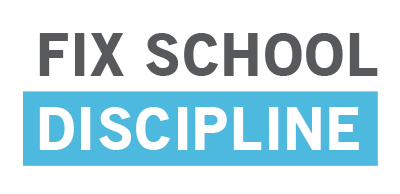New Report: Out of School & Off Track: The Overuse of Suspensions in American Middle and High Schools
 Today, UCLA’s Civil Rights Project released a new report highlighting the overuse of suspensions and the serious implications that it has on students’ trajectories including graduation rates, achievement scores, life outcomes and incarceration rates.
Today, UCLA’s Civil Rights Project released a new report highlighting the overuse of suspensions and the serious implications that it has on students’ trajectories including graduation rates, achievement scores, life outcomes and incarceration rates.
The report looks at data from over 26,000 U.S. middle and high schools during the 2009-2010 academic year. Its findings show that one out of nine secondary students was suspended at least once during that year and that the majority of suspensions were for minor infractions rather than serious violent or criminal behavior. In addition, the report looks at civil rights concerns regarding the high frequency of suspensions for students of color and other historically disadvantaged groups.
Here are some key findings:
- More than 2 million middle and high school students were suspended one or more times in a single year – that’s one in nine students nationally.
- New research from Florida cited in the study found that even one suspension in the 9th grade DOUBLED the risk of high school dropout. This study documents the fact that the decision to suspend is a high-stakes moment in the life of a young person.
- Racial disparities in the use of school discipline have grown dramatically since the 1970s, especially for African American students who now face an astonishing 24.3% risk of being suspended compared to 11.8% in 1972. In the same period, the rate increased only 1.1 points for white students, from 6% to 7.1%.
- Middle school is where suspension rates really start to climb. The elementary school suspension rate is 2.4%, but that rate jumps to 11% in middle school.
- English learners experienced a similarly dramatic increase in suspension rates: an increase of 10 percentage points (from 1.2% to 11.3%) from elementary school to middle school. This has major implications for California, where 23% of our students are English learners.
- The highest rates were observed when the intersection of race, disability, and gender was calculated; for example, 36% of all African American middle school boys with disabilities were suspended one or more times.
This extensive research highlights the need for more effective, commonsense ways to address school discipline and builds upon an earlier report on findings from K-12 grades, which conclude that; “harsh punitive responses do more harm than good” and “reserving out-of-school suspension as a measure of last resort can lead to higher achievement and improved graduation rates”. Read the entire report here…

